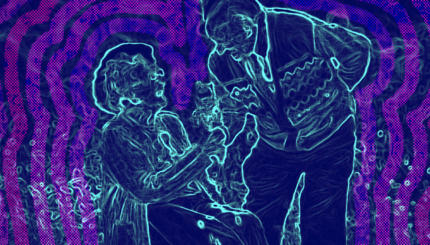Jewish camp is a place where each child has the ability to make their own Jewish choices and learn what it’s like being a part of a Jewish community. However, many of the children in North America defined as having a disability are not properly served by the Jewish camp community. Their ability to experience and explore their own Jewish identities and to feel what it is like to be a part of a Jewish community is often impeded by their disability and/or the lack of knowledge on the part of the camp on how to include them.
As Director of Disabilities Initiatives at Foundation for Jewish Camp, I work with our camps to increase the number of campers with disabilities. I work with camps on investing in staffing and training of camp staff, developing vocational and life skills training programs and enhancing their physical accessibility to children with disabilities. FJC aims to ensure that campers in North America with disabilities and their families experience camp as fully and completely as their typical peers. But what does inclusion at camp really look like? What are we, as a Jewish camp community, working towards?
Inclusion of children with disabilities at camp is the participation of such campers, to the greatest possible extent, in the full experience of a regular camp setting, alongside their peers. Campers with disabilities spend all of their time with campers without disabilities. The inclusive camp is structured in a way to allow for all campers to live and participate together while receiving appropriate supports and services based on their individual needs. Behavioral supports and accommodations are incorporated into daily living, often times under the guidance of an inclusion coordinator. The inclusion coordinator works closely with all staff to collectively provide and implement necessary accommodations and programmatic changes to achieve success for each camper.
Creating an inclusive environment also requires a philosophical shift so that all campers, regardless of abilities, will benefit. A dedication to the broad training of all staff to understand and work together in support of this vision is necessary. Camp-wide assessment of agency goals, programs, and activities within the camp’s overall mission will ensure that campers with varying abilities and needs would be able to fully participate in the life and culture of the camp.
Facilitating inclusion is more than building a ramp or providing extra staff at camp. It also has to do with making friendships possible by allowing campers with disabilities to fully participate in all of the activities that take place. This includes camp plays and dance competitions, as well as all of the other exciting sports, recreation, outdoor education, cultural arts, and social activities that take place during the summer months. Goals for each program need to be examined and revised so that camp becomes a place where individuals are allowed to thrive in all areas.
This inclusive approach will ultimately impact the entire community in many positive ways. One must ask the following types of questions: Is the appropriate goal to put on the perfect theatre performance with only the most competent actors participating? Must a finished product in the art shop look a certain way? and Does the blue team have to win every sports competition involving only the most talented athletes? Or is the value of the camp community to recognize attitude over aptitude? Every camper must have an opportunity to succeed and participate to their maximum extent.


